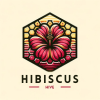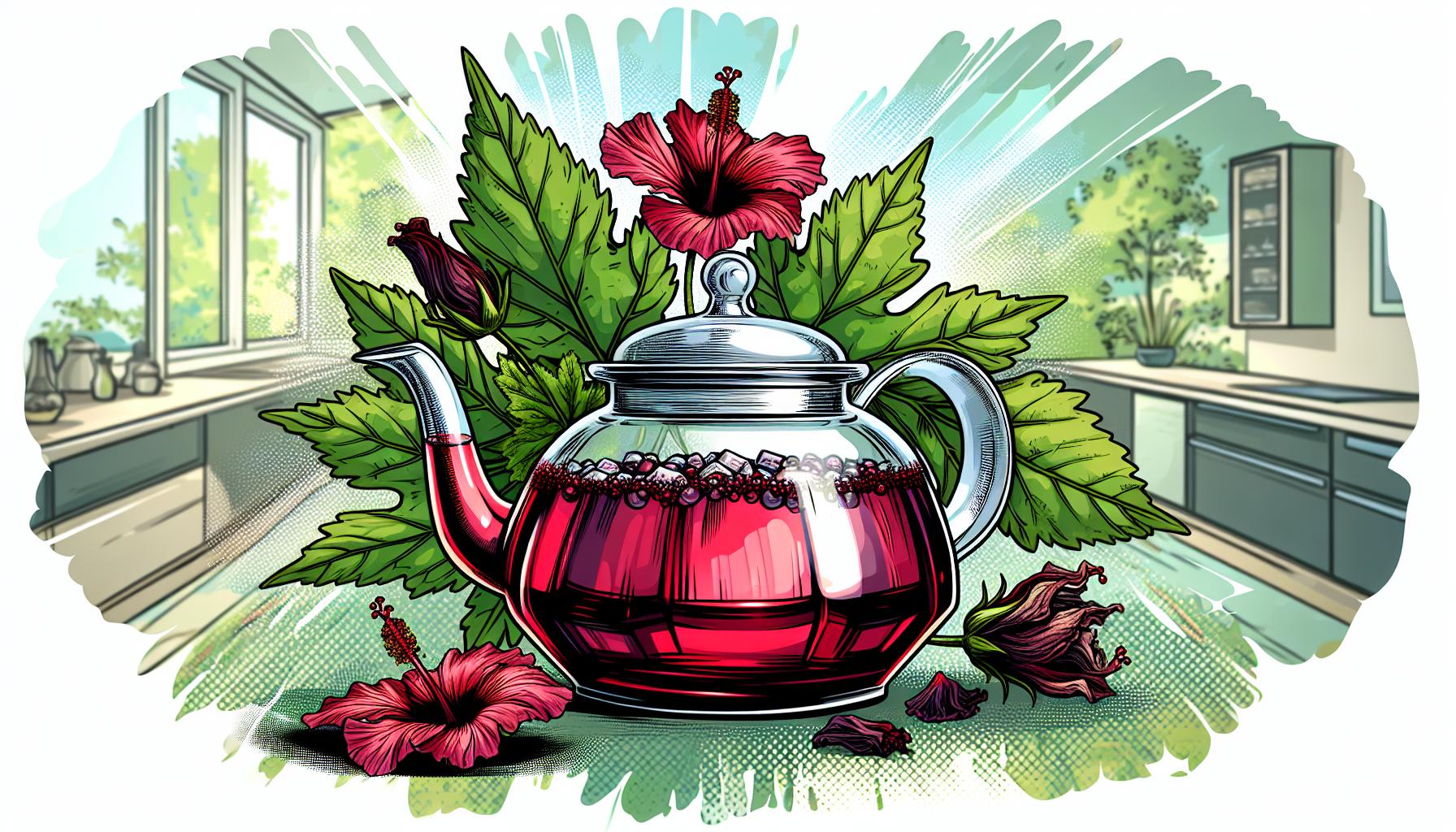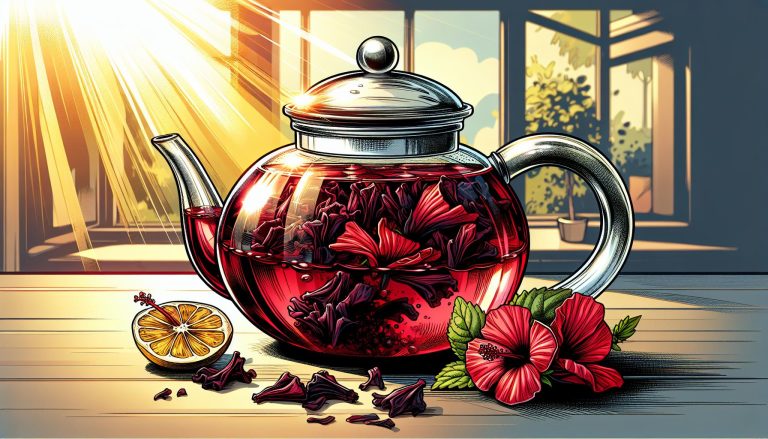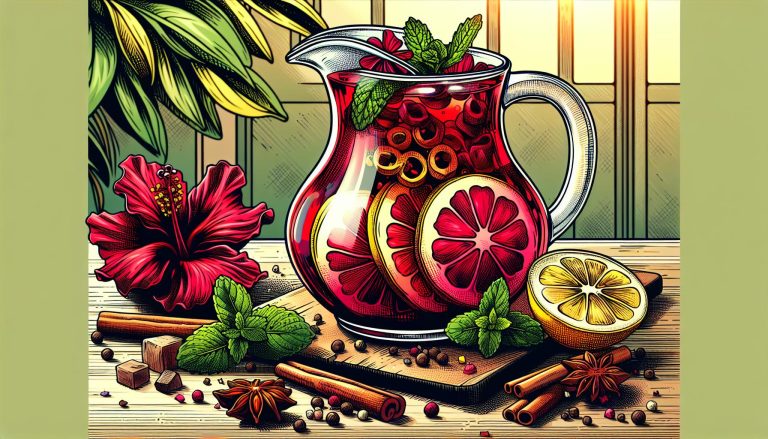Hibiscus Tea: A Natural Way to Lower Blood Pressure? Science Says Yes
As I delve into the world of natural remedies, I’ve come across an intriguing question: does hibiscus tea lower blood pressure? This vibrant, tart beverage has been a staple in traditional medicine for centuries, and now modern science is catching up to its potential health benefits.
With hypertension affecting millions worldwide, finding natural ways to manage blood pressure is more important than ever. I’ll explore the scientific evidence behind hibiscus tea’s potential to reduce blood pressure and uncover how this simple drink might be a game-changer for heart health. Join me as we sip our way through the facts and discover if this ruby-red elixir lives up to its health-boosting reputation.
What Is Hibiscus Tea?
Hibiscus tea is a vibrant, ruby-red infusion made from the dried calyces of the Hibiscus sabdariffa plant. It’s known for its tart, cranberry-like flavor and potential health benefits, including its effects on blood pressure.
Origin and Composition
Hibiscus tea originates from the tropical and subtropical regions of Africa, particularly Sudan and Egypt. The main component of hibiscus tea is the dried sepals of the Hibiscus sabdariffa flower, also known as roselle. These sepals contain various bioactive compounds, including:
- Anthocyanins
- Flavonoids
- Polyphenols
- Organic acids (citric, malic, and tartaric)
- Vitamin C
These compounds contribute to the tea’s distinct flavor profile and potential health-promoting properties.
Traditional Uses
Historically, hibiscus tea has been used for various purposes across different cultures:
- In Egypt: Consumed as a refreshing beverage and used to lower body temperature
- In Sudan: Served as a celebratory drink at weddings and other special occasions
- In West Africa: Used as a traditional medicine to treat high blood pressure and liver diseases
- In Iran: Employed as a natural remedy for high blood pressure and high cholesterol
- In Mexico: Known as “agua de Jamaica” and consumed as a popular cold beverage
Traditional medicine practitioners have long valued hibiscus tea for its potential to support cardiovascular health, aid digestion, and boost the immune system. Modern research has begun to explore these traditional uses, particularly focusing on its effects on blood pressure and heart health.
The Link Between Hibiscus Tea and Blood Pressure
Hibiscus tea’s potential to lower blood pressure has garnered significant attention in the scientific community. Numerous studies have explored the relationship between this vibrant beverage and its effects on cardiovascular health.
Scientific Studies on Hibiscus Tea
Research consistently demonstrates hibiscus tea’s positive impact on blood pressure. A 2010 study published in the Journal of Nutrition found that consuming hibiscus tea for six weeks reduced systolic blood pressure in pre-hypertensive and mildly hypertensive adults. Another randomized controlled trial in 2015, published in the Journal of Human Hypertension, showed that hibiscus tea was as effective as captopril, a common blood pressure medication, in reducing blood pressure in patients with stage 1 hypertension.
| Study | Duration | Participants | Results |
|---|---|---|---|
| Journal of Nutrition (2010) | 6 weeks | Pre-hypertensive and mildly hypertensive adults | Reduced systolic blood pressure |
| Journal of Human Hypertension (2015) | 4 weeks | Patients with stage 1 hypertension | Comparable effectiveness to captopril |
These studies provide compelling evidence for hibiscus tea’s antihypertensive properties, supporting its potential as a natural alternative for blood pressure management.
Mechanism of Action
Hibiscus tea’s blood pressure-lowering effects stem from its unique composition of bioactive compounds. The tea’s antihypertensive properties are primarily attributed to:
- Angiotensin-Converting Enzyme (ACE) inhibition: Hibiscus extracts inhibit ACE, an enzyme involved in blood pressure regulation.
- Vasodilation: Anthocyanins in hibiscus promote the relaxation of blood vessels, improving blood flow.
- Diuretic effects: Hibiscus tea increases urine output, helping to reduce fluid retention and lower blood pressure.
- Antioxidant activity: The tea’s high antioxidant content combats oxidative stress, a factor in hypertension development.
These mechanisms work synergistically to produce hibiscus tea’s overall blood pressure-lowering effect, making it a promising natural option for those seeking to manage their cardiovascular health.
Potential Benefits of Hibiscus Tea for Hypertension
Hibiscus tea offers promising benefits for individuals with hypertension. Its natural compounds work synergistically to support cardiovascular health and potentially lower blood pressure.
Comparison to Blood Pressure Medications
Hibiscus tea’s effectiveness compares favorably to some prescription medications. A 2015 study published in the Journal of Hypertension found hibiscus tea as effective as captopril, a common ACE inhibitor, in treating mild hypertension. Participants who consumed hibiscus tea experienced a 7.9% reduction in systolic blood pressure, similar to the 8.7% reduction seen in the captopril group. Unlike many blood pressure medications, hibiscus tea doesn’t cause side effects like dizziness or headaches, making it a well-tolerated alternative for some individuals.
Recommended Dosage
The optimal dosage of hibiscus tea for blood pressure management varies based on individual factors. Most studies use 1-3 cups (240-720 ml) of hibiscus tea daily. A typical preparation involves steeping 1.25-2 grams of dried hibiscus calyces in 150-250 ml of hot water for 5-10 minutes. To maximize potential benefits, consume hibiscus tea consistently for at least 2-6 weeks. It’s crucial to consult a healthcare provider before using hibiscus tea as a supplement, especially if you’re taking medications or have existing health conditions.
Other Health Benefits of Hibiscus Tea
While hibiscus tea’s impact on blood pressure is impressive, it offers a range of additional health benefits. Let’s explore some of the other ways this vibrant beverage can contribute to overall well-being.
Antioxidant Properties
Hibiscus tea is packed with powerful antioxidants that combat oxidative stress in the body. These antioxidants, including flavonoids and anthocyanins, neutralize harmful free radicals, protecting cells from damage. Studies show that regular consumption of hibiscus tea increases antioxidant capacity in the blood, potentially reducing the risk of chronic diseases like cancer and heart disease.
Effects on Cholesterol
Hibiscus tea has shown promising effects on cholesterol levels, contributing to improved heart health. Research indicates that drinking hibiscus tea can lower total cholesterol and LDL (bad) cholesterol while increasing HDL (good) cholesterol. A study published in the Journal of Alternative and Complementary Medicine found that participants who consumed hibiscus tea for four weeks experienced a 8.3% reduction in total cholesterol and a 14.4% decrease in LDL cholesterol compared to the control group.
Precautions and Side Effects
While hibiscus tea offers potential health benefits, it’s crucial to be aware of its precautions and side effects. Understanding who should avoid this herbal tea and its possible interactions with medications ensures safe consumption.
Who Should Avoid Hibiscus Tea
Pregnant women should avoid hibiscus tea due to its potential to stimulate menstruation and affect hormone levels. Individuals with diabetes need to monitor their blood sugar closely when consuming hibiscus tea, as it may lower blood glucose levels. Those with low blood pressure should exercise caution, as hibiscus tea can further reduce blood pressure. People with liver or kidney disease should consult their healthcare provider before incorporating hibiscus tea into their diet. Lastly, individuals scheduled for surgery should stop drinking hibiscus tea at least two weeks before the procedure to prevent potential complications.
Possible Interactions with Medications
Hibiscus tea can interact with certain medications, potentially altering their effectiveness. It may enhance the effects of diuretics, leading to increased fluid loss. When combined with blood pressure medications, hibiscus tea can cause an excessive drop in blood pressure. The tea can also interfere with the body’s ability to process certain medications, including chloroquine (used to treat malaria) and acetaminophen. Individuals taking diabetes medications should be cautious, as hibiscus tea may lower blood sugar levels, potentially leading to hypoglycemia. To ensure safety, I recommend consulting a healthcare provider before consuming hibiscus tea regularly, especially if you’re taking any medications.
How to Incorporate Hibiscus Tea into Your Diet
Incorporating hibiscus tea into your diet is simple and can be done in various ways. Here’s how to make the most of this health-promoting beverage.
Brewing Methods
To brew hibiscus tea, steep 1.25-2 grams of dried hibiscus calyces in 150-250 ml of hot water for 5-10 minutes. For a stronger flavor, use more hibiscus or steep longer. Cold brew hibiscus tea by soaking the calyces in cold water for 12-24 hours in the refrigerator. Add hibiscus tea to smoothies, use it as a base for mocktails, or mix it with other herbal teas for a unique blend. Experiment with adding natural sweeteners like honey or stevia if you find the tea too tart.
Frequency of Consumption
For potential blood pressure benefits, consume 1-3 cups (240-720 ml) of hibiscus tea daily. Consistency is key, so aim to drink it regularly for at least 2-6 weeks to see potential effects. Space out your consumption throughout the day, such as having a cup in the morning, afternoon, and evening. Monitor your body’s response and adjust intake as needed. Remember to consult with a healthcare provider before making significant changes to your diet, especially if you have existing health conditions or take medications.
Conclusion
Hibiscus tea shows promise as a natural remedy for lowering blood pressure. Its effectiveness coupled with minimal side effects makes it an attractive option for those seeking alternative treatments. However it’s crucial to approach its use responsibly.
Always consult with a healthcare provider before incorporating hibiscus tea into your routine especially if you have existing health conditions or take medications. While the potential benefits are exciting remember that individual responses may vary.
By making informed decisions and monitoring your body’s response you can potentially harness the power of this vibrant beverage to support your cardiovascular health. Here’s to exploring natural ways to boost our wellbeing!







